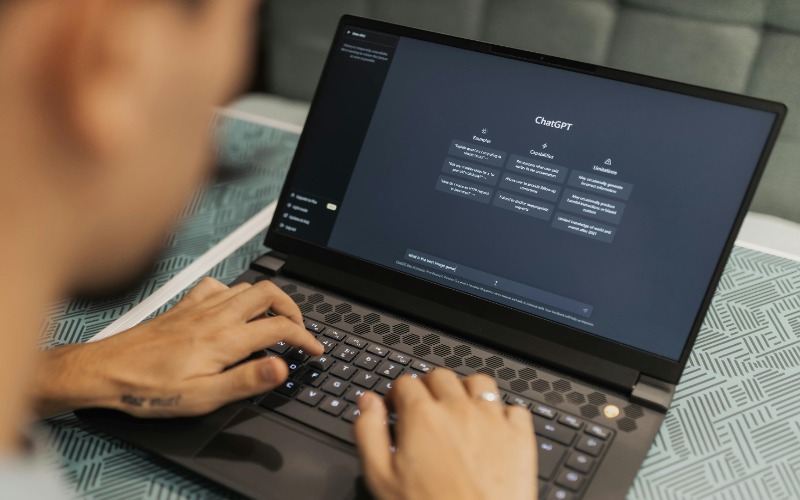Change is blazing a trail across the workplace, and artificial intelligence (AI) is the fuel. Will robots steal our jobs? This fear sells newspapers but misses the mark. The reality is more nuanced and exciting, and it demands a new mindset. AI holds the power to make our work lives better, but only if we harness it the right way.
Let’s explore where this technological wildfire is taking us.
AI-Powered Automation: Jobs Will Shift, Not Disappear
Robots on factory floors are old news. AI-powered automation is a different beast. It’s not just about muscle – it’s about machines that learn, adapt, and perform tasks we once thought were the sole domain of humans. Think beyond the assembly line:
- Everyday Automation: Self-checkout isn’t just about convenience – it’s AI handling routine customer interactions. Your ride-share driver? Dispatched by a tirelessly optimizing algorithm.
- Vulnerable vs. Resilient Jobs: Repetitive tasks like data entry are at risk. Jobs demanding social skills, caregiving, or on-the-spot judgment remain far less susceptible to automation.
- The Economic Paradox: While some jobs will vanish, history shows technological leaps often create more jobs than they destroy in the long run. The caveat? We need to prepare our workforce for those new opportunities.
Humans + AI: A Winning Combination
Technology excels at what we humans struggle with–crunching mountains of data and spotting patterns hidden from our eyes. When AI is a teammate, not an overlord, it unlocks new possibilities:
- Doctors Get a Boost: Imagine AI scanning thousands of medical images for early signs of disease, giving your doctor crucial insights to provide better care.
- Creativity Unleashed: AI can generate ideas, suggest content variations, and handle tedious edits, freeing writers and designers to focus on the big picture.
- Mindset Matters: Staying ahead of the curve will not involve learning to think like a machine but cultivating our unique human skills–empathy, intuition, and problem-solving that adapt to chaos.
Closing the Skills Gap: It’s Time to Learn
An AI-powered world will reward those ready to evolve. Don’t just panic; plan.
- Tech Skills Are a Must: Coding, data science, and AI engineering are in demand, but not the only answer.
- ‘Soft’ Skills Are Your Secret Weapon: Critical thinking, communication, and the ability to learn on the fly – those become even more valuable as AI handles the routine.
- A Shared Responsibility: Companies and governments must invest in reskilling and educational reforms. This isn’t just a personal problem; it’s about creating a thriving future economy.
AI and Finance: Fairness or Free-For-All?
Finance is built on numbers, making it ripe for AI disruption. Here’s how it’s playing out:
- Democratizing Advice: AI-powered robo-advisors bring investment services to the masses, not just the wealthy.
- Fraud Fighters: Vast datasets let AI spot fraudulent transactions more quickly, keeping everyone safer.
- Fairness vs. Algorithms: Unchecked AI can perpetuate bias, even impacting decisions crucial to financial well-being. Think loan approvals, credit limits, and even the imposition of an unfair late fee. Companies must proactively design systems built on ethical principles.
Ethical AI: Or We All Lose
AI, like any tool, can be used for good or ill. Developers must make ethical AI design a core component, not an afterthought.
- Bias Is a Real Threat: Systems trained on flawed data can lead to discrimination in hiring, lending, and more.
- Transparency Matters: It can’t be a black box. Users need to understand how AI reaches decisions, or even the best-intentioned system can backfire.
- Beyond Regulation: Laws will lag behind the tech. Companies must hold themselves accountable for responsible, equitable AI.
The Gig Economy: Freedom or a Treadmill?
AI isn’t just transforming traditional jobs – it’s a driving force behind the rise of the gig economy. Platforms for freelance work, task-based services, and the on-demand workforce promise flexibility but introduce a whole new set of challenges:
- The Autonomy Illusion: On the surface, gig workers seem to have control over their schedule and workload. But behind the scenes, algorithms often dictate rates, work availability, and even who gets their assignments picked up.
- The Benefits Gap: Gig work often means saying goodbye to the safety net of a traditional job – healthcare, retirement savings, sick leave, and even basic legal protections against unfair treatment.
- Race to the Bottom: Reducing work to compete for individual tasks can drive down wages and erode worker bargaining power. AI-powered pricing systems only add to this pressure.
- AI as Gatekeeper: The gig economy platforms rely heavily on AI. It helps match workers with tasks, set prices, and influence who gets the most desirable work. If left unchecked, bias can creep into these decisions, locking certain workers out of opportunity.
Redefining Success: When Work Isn’t 9-to-5
An AI-shaped future will force us to question our definition of a “successful” career. Here’s where things get interesting:
- Goodbye, Linear Career Path: Forget climbing the corporate ladder. The future may favor those with a diverse skillset who navigate a “portfolio career” – juggling multiple gigs, projects, or even part-time roles simultaneously.
- Seeking Meaning, Not Just Money: If AI handles a growing share of the basic tasks needed for survival, will we prioritize work based on its purpose, impact on others, or the personal satisfaction it brings? Meaning could become a greater priority than a simple paycheck.
- Universal Basic Income? It’s a radical idea but one gaining traction. If AI drives productivity gains that make vast job losses inevitable, could a guaranteed basic income ensure everyone shares in the benefits technology provides?
- The Fight for Leisure: Theoretically, AI-driven automation should mean we all work less. But will it? Or will we find ourselves scrambling harder to keep up, leaving no time for the rest, relaxation, and personal growth that make life worth living?
Conclusion: The Future Is About Partnership
The future belongs to those who adapt, embrace change, and use new technology to enhance their unique talents. AI won’t render us obsolete but will demand a new mindset. Let’s focus on where humans shine brightest: creativity, empathy, and the ability to solve problems no machine yet understands. That’s the recipe for a future where both we and the technology we create thrive.










